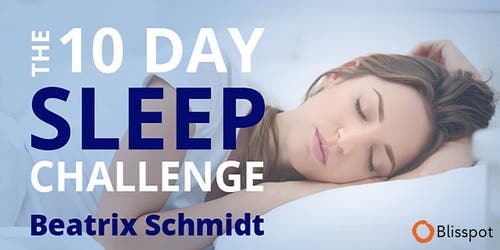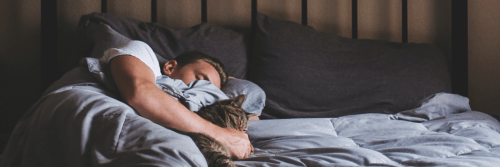In my line of work, I talk a great deal with my clients about sleep hygiene. But you might be wondering how I define that term, ‘sleep hygiene’.
Essentially, this is about preparing yourself for a good sleep physically, mentally and emotionally by taking practical steps, and also having a positive attitude about it.
So many people I speak to are in the habit of worrying about their sleep before they even get there, and that mindset only adds to their tension, making good quality sleep harder to attain.
The video above is from a talk I recently gave for a corporate client. I was asked to talk about the behaviours we have that affect our sleep, as it’s really common for busy career people to not get enough rest. When we are super busy and focused on our career, we tend to default to general advice about sleep, rather than taking time to focus on our individual needs.
Assess your sleep environment
A great exercise is to stand at your bedroom door looking in, and without overthinking, list what you like and don’t like about your room:
- Is there clutter making you feel stressed?
- Perhaps you wish your room was a more relaxing colour?
- Are your bed sheets soft and enjoyable to sleep in?
If you ask a child whether or not they like their bedroom and why you will get a really straight answer. A child will talk to you about colours, textures, and what makes them happy and cosy. So keep it simple in the same way. Think about what makes you happy.
Light and dark
If you need them, then blackout curtains are great for helping you to stay asleep. Just keep in mind that they are not great at helping you to wake up in the morning!
The sunrise gives our body a natural, gradual wake up by triggering our body’s cortisol response. So if you are using blackout curtains then I recommend a sunrise simulation alarm clock (Lumie is a good brand) to get you feeling more ready to wake up when it’s time.

Your ideal bedtime is personal to you
On the note of your needs being personal to you, this is a great example. So let’s start with this myth that there is an optimal time to go to bed. It’s really not a one size fits all thing.
Just because an online article says that 10 pm is the best time to turn in for the night, doesn’t mean it will be for you. There are just too many individual factors for each of us to consider.
Bear in mind your lifestyle and how your body naturally works. Some of us are night owls and some are early birds.
Stimulants
Let’s bust another myth here – there is nothing wrong with coffee in small doses and at the right time of day. When it comes to the last hours of your day, when you are winding down for sleep, then any food or drink, even just water, can be a stimulant. If you are digesting a big meal, have had alcohol, or even too much water before bed then this can wake you up in the night.
There’s no big secret to this, it’s really just common sense and paying attention to how your body responds.
To nap or not to nap
I know so many people are curious about this. What I say to my clients is simply that the end goal is not to need a nap. Our bodies are perfectly capable of getting us through each day without needing to nap.
It is quite common for people to patch up a sleep deficit with naps at the weekend. I know it can feel beneficial at the time, but the thing to bear in mind is that your nap will likely upset your sleep schedule as a whole.
So looking at the bigger picture, if your naps means you get to sleep a little later on Sunday night, then on Monday morning, how are you going to feel?
The bottom line is that when we get our sleep right, our energy levels will be high enough that we don’t feel the need to nap anymore.








